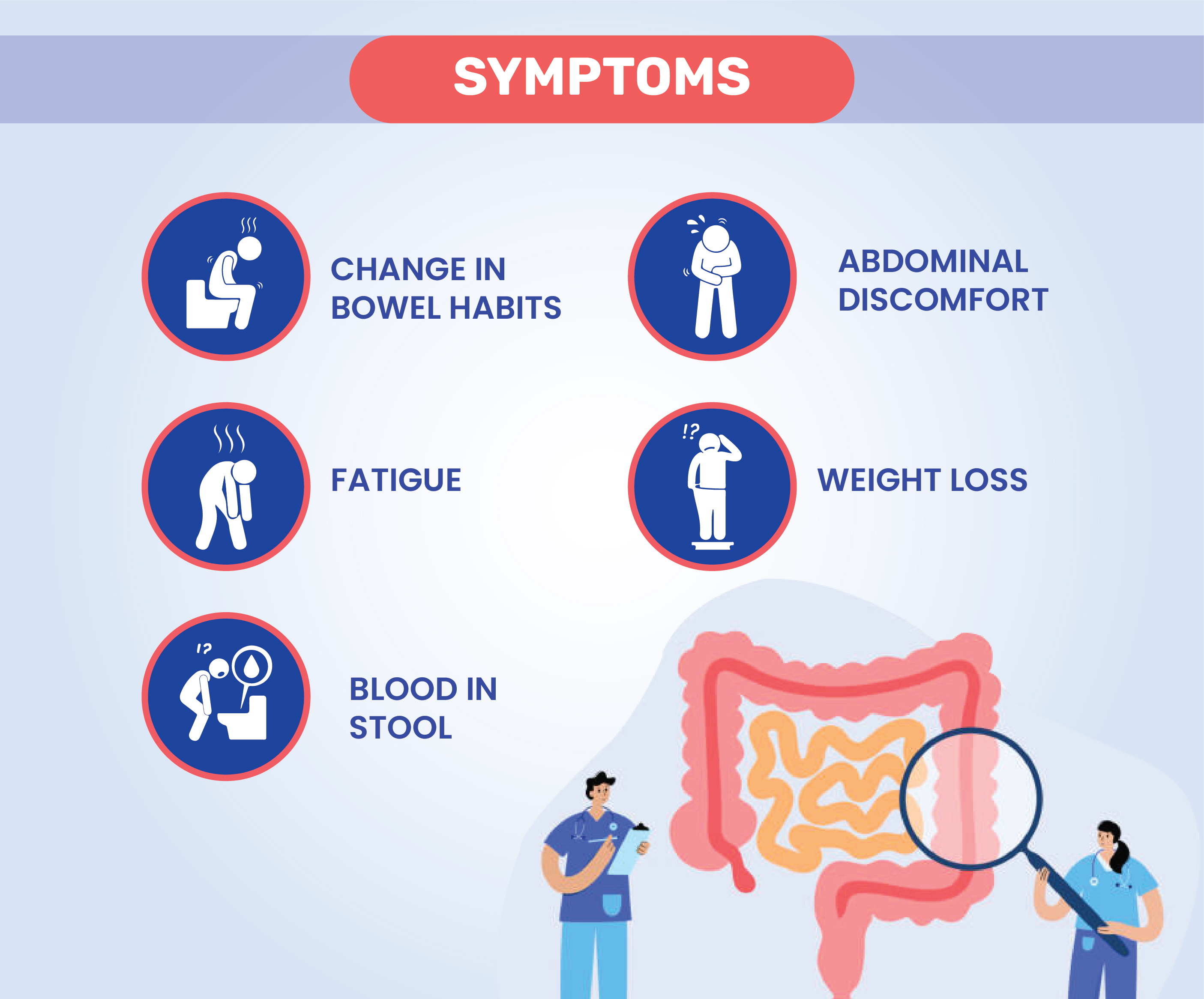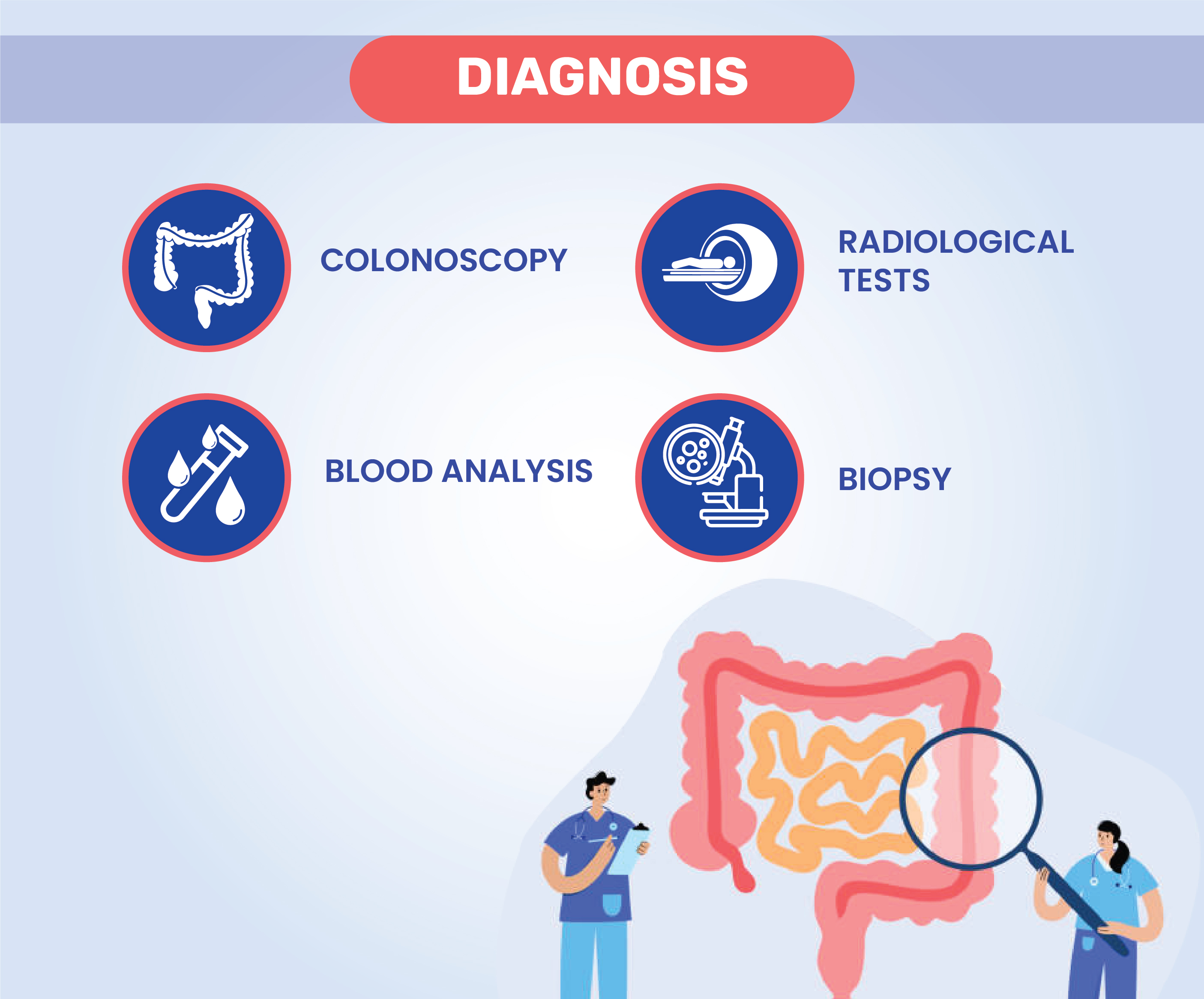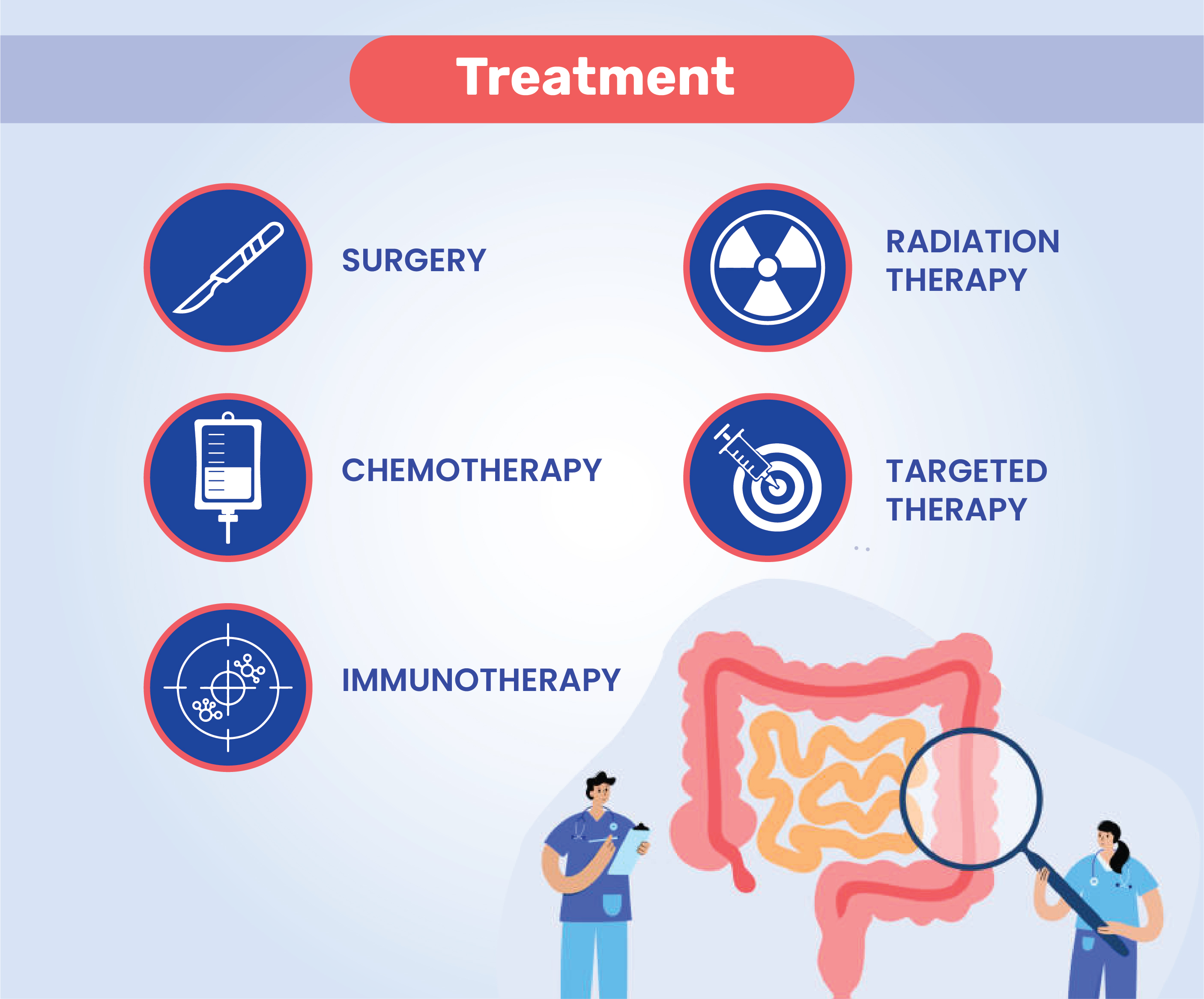Colorectal Cancer
The large intestine (colon) is where colorectal cancer, also known as bowel cancer, first appears. The digestive system ends with the intestine. Healthy cells transform and develop out of control in the rectum or colon lining, where cancer initially shows up as a mass or lump known as a tumor.
Colon cancer can strike anyone at any age, but it typically affects adults more. First symptoms of the disease are typically small, benign (non-cancerous) cell clusters called polyps that develop on the interior of the colon. Colon cancer could ultimately arise from some of the polyps.
Dr. Viraj Lavingia, the colorectal cancer specialist in Gujarat will advise routine screening tests to help prevent colon cancer because polyps are smaller in size and cause fewer symptoms.
The third most prevalent cancer in the world, colorectal cancer typically affects males more frequently than women. Colon and gastrointestinal cancer can also be caused by an inactive lifestyle.
Signs and Symptoms:
Colon cancer in its early phases frequently has no symptoms. The following indications and symptoms could surface in the later stages:
- Change in bowel habits
- Abdominal discomfort
- Fatigue
- Weight loss
- Bloody Stool
Visit Lucknow’s leading Medical Oncologist and Colon Cancer specialist Dr.Viraj Lavingia if any of the above symptoms continue over a proplonged period of time.
Diagnosis:
Doctors advise screening procedures to search for non-cancerous colon polyps or signs of colon cancer in healthy individuals who exhibit no symptoms or signs. This aids in early detection and increases the likelihood of a recovery.
According to doctor recommendations, screening can begin around the age of 45 for those with an average chance of colon cancer.
Several tests and procedures, such as the following, may be advised by your doctor if your symptoms and signs point to the existence of colon cancer:
- Colonoscopy: An endoscopy is performed and a sample of the colon is taken to check for the growth of tumors. Through the anus, a lighted tube is inserted during a colonoscopy to allow for detailed observation of the interior of the intestine. If it is found within 15 centimeters of the anus, it is considered a rectal tumor, and if it is found farther away from the anus, it is considered a colon tumor.
- Radiological Tests: A variety of radiological tests, including CT scans, PET scans, and MRIs, are carried out to help pinpoint the precise position and size of the tumor.
Treatment
Given that colon cancer is one of the treatable cancers, early detection can improve survival rates. The stages of the illness (stages 0-IV) and the type of cancer determines how colorectal/colon cancer is treated. According to the size of the tumor, the involvement of the lymph nodes, and whether it has spread to other body parts, the illness has been staged. (metastasized). The thorough examination of the illness aids in selecting and organizing the best course of therapy for the patient. Surgery, chemotherapy, radiotherapy, and occasionally a mix of these are available treatments for colorectal and colon cancer. (Radiotherapy and Chemotherapy). Later phases involve the use of targeted biological therapy. (IV).
- Surgery: In case of colorectal cancer being small in size, a minimal invasive surgery can be done like:
- Removing polyps during a colonoscopy (polypectomy): If the cancer is small, localized and incorporated inside a polyp, it can be removed via colonoscopy.
- Endoscopic mucosal resection: For the removal of larger polyps, special tools are used during colonoscopy which help in removing the polyp as well as compact amount of the inner lining of the colon. This procedure is known as Endoscopic mucosal resection.
- Minimally invasive surgery (Laparoscopic surgery): The polyps that cannot be removed easily with the colonoscopy are done with the laparoscopic surgery. Various small sized incisions are made in the wall of the abdomen, an instrument consisting of attached cameras is inserted and the colon is displayed on the monitor. This is helpful in taking samples from the lymph nodes in affected location.
For the more advanced stage of colorectal cancer, where the cancer has impregnated through your colon, different types of surgery can be useful such as:
- Partial Colectomy: In this procedure, the affected portion of your colon is removed along with the normal tissues surrounding it on the either side of the cancer. The healthy portion of the colon or rectum are reconnected after the removal of the affected portion.
- Lymph node removal: The surrounding lymph nodes of the colon are extracted and tested for cancer.
- Surgery for the removal of waste from the body: At times, when it is not possible to reconnect the healthy parts of the colon or rectum, an ostomy can be done. An ostomy is a procedure in which an opening is created in the abdominal all from a portion of the remaining bowel for the evacuation of stool into a bag. Ostomy can be temporarily done or permanently depending upon the need.
- Chemotherapy: Certain medications are used in chemotherapy to kill cancer cells. Chemotherapy is typically administered after the surgery if the cancer is more advanced or has spread to the lymph nodes. Chemotherapy in such cases aims to eliminate any cancer cells that might still be present in the body and lowering the likelihood of cancer return. It can even be used before a surgery to reduce the size of a large cancer to make it simpler to remove surgically.
- Radiation Therapy: To stop the growth of cancer cells, radiation treatment makes use of potent energy sources like protons and X-rays. It can be used prior to surgery to decrease the size of a large tumor to enhance its easy removal. Radiation and Chemotherapy are occasionally used together.
- Targeted Therapy: Targeted drug therapies concentrate on particular abnormalities that are found in cancer cells. Targeted drug therapies can kill cancer cells by preventing these anomalies. Chemotherapy is often used in combination with Targeted medications, The use of this combination is usually limited to those with advanced colon cancer.
- Immunotherapy: Immunotherapy is an anti-cancer drug approach that makes use of one’s immune system. Cancer cells create proteins that prevent immune system cells from recognizing the cancer cells, because of which the body’s immune system may not attack your cancer. Immunotherapy affects that process in order to function.
Changes in certain lifestyle habits can enhance the prognosis and quality of life. Weight control, regular exercise (at least 150 minutes per week), a diet rich in antioxidant-rich fruits and vegetables, and avoiding alcohol and tobacco use can all be included in a lifestyle change. Red and processed meat should be avoided as they have been linked to an increased chance of colon and/or colorectal cancer.



